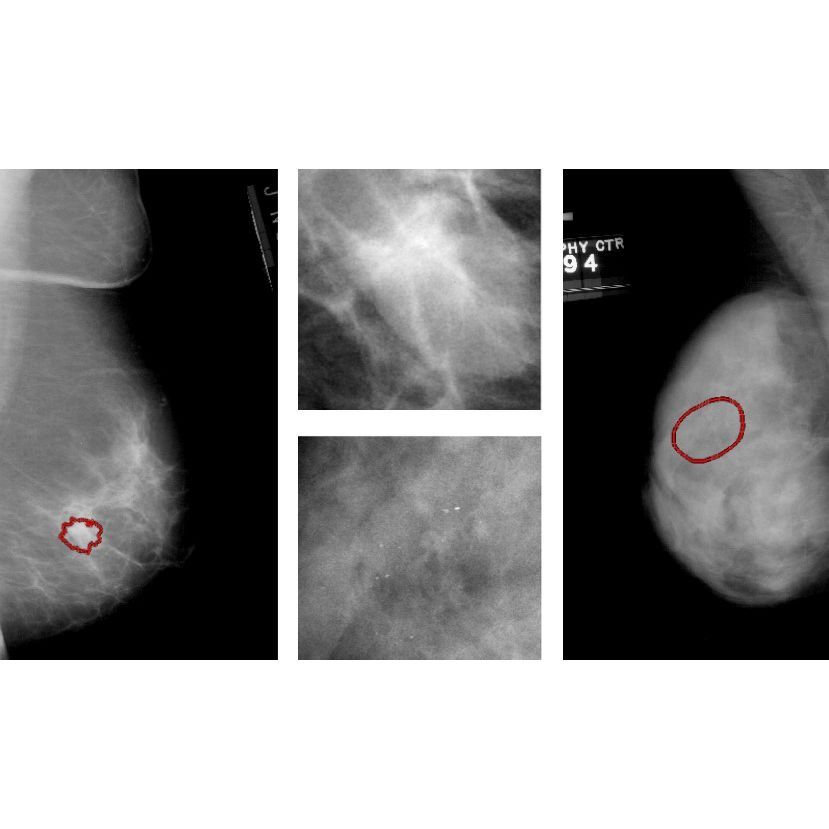
Multi-task Transfer Learning for Deep Convolutional Neural Network in Automatic Classification of Mammography
Researchers: Angelica I. Aviles-Rivero, Fiona Gilbert, Yuan Huang, Carola-Bibiane Schönlieb, Shuo Wang
Breast cancer is one of the most frequently diagnosed cancers and accounts for 25% of the total cancer-related deaths among women. Mammography is the primary screening modality, which confers a 20% reduction in mortality by the early detection and treatment. In UK, more than 2,200,000 women attend mammography screening each year, and each mammogram is double-read by radiologists. This leads to a large workload and challenge to the healthcare system. Moreover, standard two-dimensional (2D) mammography is susceptible to false positive and overdiagnosis from overlapping breast tissue. As a newly developed three-dimensional (3D) mammographic technique, Digital Breast Tomosynthesis (DBT) provides improved accuracy3 and is recommended by FDA in combination with mammography for screening. On the other hand, DBT increases reading times from 50%-200% as the number of available images has vastly increased.
The project aims at developing multi-task transfer learning algorithms to build end-to-end deep learning models, for automatic diagnosis of breast cancer based on 2D mammography, 3D DBT, as well as their combination.




